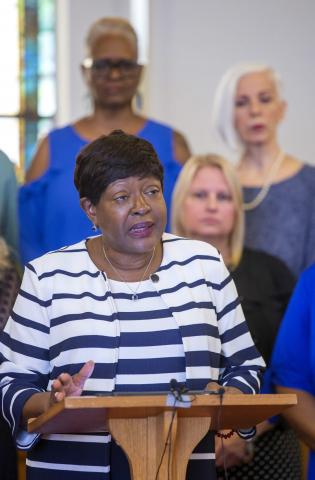
Joyce Hobson Johnson is a survivor of the 1979 massacre, a member of the National Council of Elders, and a co-director of the Beloved Community Center in Greensboro, N.C.
Posts By This Author
The Greensboro Model
To accelerate racial justice, we need a national truth commission—lessons and warnings from those who have been there before.
ON NOV. 3, 1979, five young labor organizers were murdered by Nazis and Klansmen in Greensboro, N.C. Ten were wounded. And a low-income, African American community was terrorized. The police knew the ambush plans and chose to be visibly absent. This tragic event eerily foreshadows what happened in our nation’s capital on Jan. 6. Our country is at a boiling point. We are closer than many want to admit to losing this developing republic.
To address together growing national divisions, we must struggle with three evils: white supremacy, massive economic disparity, and a significant decline in the moral fabric of this nation. These issues must be addressed concurrently if they are to be effectively addressed at all. To do this, we need to design a process in which people can walk toward each other and, ultimately, with each other out of this moment and into a more just and equitable future.
Truth must be foundational in the process we design. Attempting to advance policies to address the legacy of racism and segregation without first establishing the truth of the impact of that lived history at the community level risks exacerbating our divisions.
